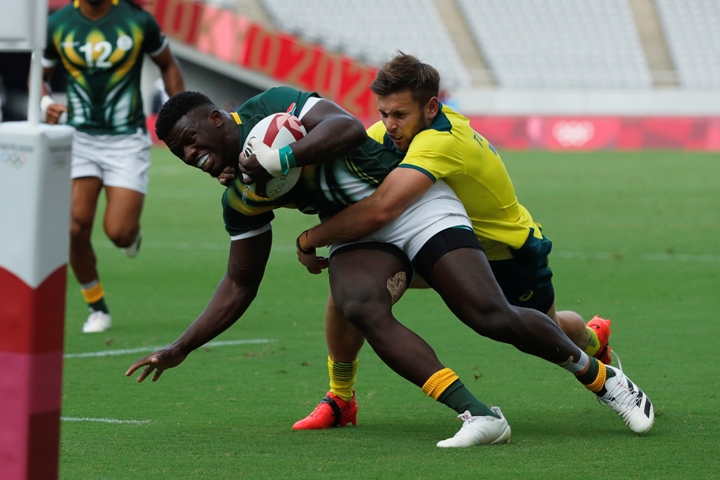Springboks' win symbolises unity and reconciliation
Addressing the occasion of the SuperSport homecoming of the world champions in Johannesburg, Kodwa said the Springbok accomplishments on the four-world cup wins has a far-reaching impact.

- Country:
- South Africa
Minister of Sport, Arts and Culture Zizi Kodwa says the significance of the Springboks' 2023 Rugby World Cup (RWC) win extends beyond the rugby field; it symbolises unity and reconciliation in South Africa and is a core ingredient for SA’s journey to nationhood.
“Their victory serves as a source of national pride and it gave the nation hope, thereby boosting the nation's morale. Moreover, it promotes diversity and sportsmanship while fostering a sense of identity and belonging among South Africans,” the Minister said on Wednesday.
Addressing the occasion of the SuperSport homecoming of the world champions in Johannesburg, Kodwa said the Springbok accomplishments on the four-world cup wins has a far-reaching impact.
The Springboks won the 2023 Rugby World Cup against New Zealand at the finals in Paris, France, on Saturday, 28 October 2023.
“You inspire our youth to dream big, work hard, and aim for the stars. For South Africans, the 2023 RWC has demonstrated beyond any doubt that sport has a unique power, especially rugby.
“It brings people together, transcending boundaries of language, culture, and background. It unites us in a common cause, creating a sense of shared identity and purpose. As we celebrate your victory today, we also celebrate the unity and strength that sports can bring to our nation.
He said over the past month, South Africa has been on a glorious wave, united in their support of the Springboks and celebrating the team’s triumphs because it represents their aspirations and hopes.
“What you saw at the airport yesterday was a glimpse of the vibe that was at the fan parks and viewing places across South Africa.
Sport development
“One of the priorities of government is sports development in schools and at grassroots level. Your success has inspired children from around the country to get into sports, and to try to be the next Eben Etzebeth, Pieter-Steph du Toit, Bongi Mbonambi, Damian Willemse, Cheslin Kolbe, Faf de Klerk, or Siya Kolisi.
“I have seen new rugby clubs being activated in places like Gqeberha during this period because of these young people associating with their role model, Siya Kolisi,” the Minister said.
He therefore emphasised that sports development of grassroots sports and talent identification should be prioritised.
“Our future champions are waiting to be discovered in communities across the country. Together, we need to invest in infrastructure, coaching, and talent scouting to ensure that no talent goes unnoticed. Let us strive to create pathways for young athletes to progress from the grassroots level to elite competition,” Kodwa said.
Social cohesion
He paid tribute to Springboks coach Rassie Erasmus, for being a champion of social cohesion and national unity.
“When you appointed Siya as a captain back in 2019, although at the time the decision must have invited a lot of commentary and hurtful statements, you stuck to your devising. In 2023, history be the judge, you were right.
“I have no doubt you influenced the appointment of coach Jacques who was a physio at that time, that too, am sure invited a lot of commentary about that decision and his decision. In 2023, history be the judge, you were right. This is the kind of leadership that is required if we are to make progress, to take hard bold decisions and remain loyal to our decisions,” the Minister said.
He thanked the players for their hard work during the tournament.
“To each and every one of the players, you have become advocates of social cohesion. It is only through sport that we achieve our aspirations as outlined in the preamble of the constitution of republic. South Africa belongs to all who live in it, a truly non-racial South Africa,” Kodwa said.
The Minister called upon academics in business schools to write case studies on the entire experience.
“I am sure both private and public sector leaders could learn a thing or two from it! It would be great to see the same experience being replicated on all fronts for a socially cohesive nation. Let us build on it and never go back,” he said.
(With Inputs from South African Government Press Release)
- READ MORE ON:
- Springboks
- Zizi Kodwa
- Rugby World Cup
- Rassie Erasmus










